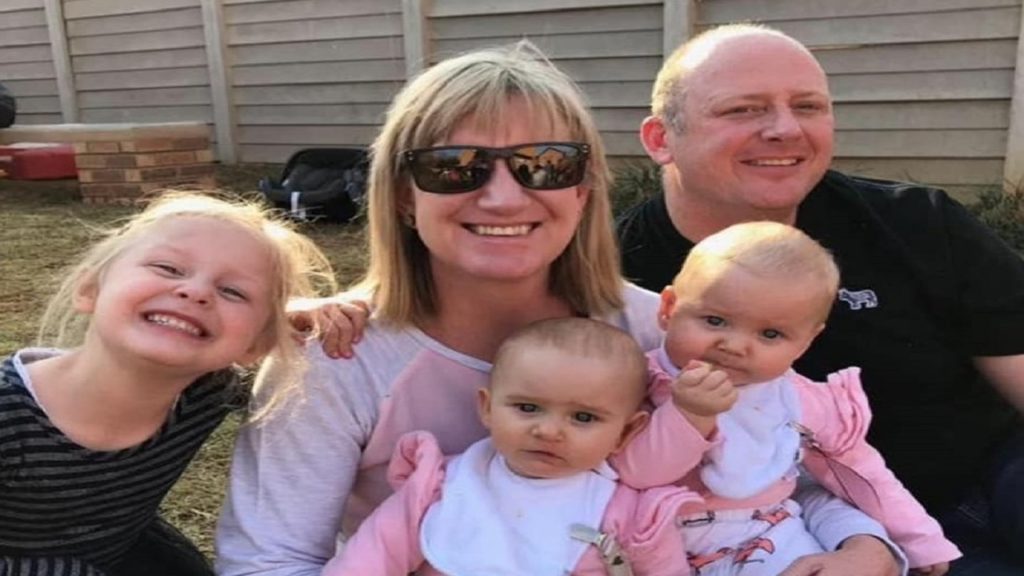Content warning: The following includes explicit descriptions that may be unsettling for certain readers.
State prosecutor Andrew McRae delivered his closing arguments in the Lauren Dickason trial in the High Court of Christchurch, New Zealand yesterday.
McRae asserted that there existed “no uncertainty” regarding Lauren Dickason’s responsibility for the death of her children.
As reported by News24, the focal point of contention, as McRae outlined, revolved around whether her actions could be justified under the grounds of insanity and infanticide, as posited in her defence.
Accused of murder, Dickason stands charged with the deliberate strangulation by cable ties and suffocation of her children: Liané (6) and twins Maya and Karla (2). Despite the charges, she entered a plea of not guilty.
ALSO SEE: Woman who kidnapped Zephany Nurse to be released on parole
Dickason was arrested in September 2021 after the bodies of the children were discovered in the Timaru home by their father, Dr Graham Dickason, upon returning home from a dinner with colleagues.
As reported by New Zealand’s Stuff, the prosecutor contended that Lauren Dickason’s behaviour was motivated by feelings of ‘anger and control.’ Despite her struggles with depression, the prosecutor asserted that her cognitive faculties were sufficiently intact to comprehend the ethical wrongdoing of her actions.
“Once she started doing what she was doing, there was no turning back. She did not contemplate stopping,” McRae argued to the jury.
The prosecutor put forth the argument that Dickason had displayed improvement in her depression during the months leading up to the tragic incidents.
McRae emphasised that demonstrating motive wasn’t the state’s obligation and highlighted that even if Lauren Dickason had committed the act of ending her children’s lives as an altruistic gesture, she could still possess the awareness that her actions were ethically unacceptable.
He implored the jury to detach any sympathetic sentiments they might hold for Dickason.
“You may feel sorry for her, given everything she’s lost. You can acknowledge those feelings, but you need to put them to one side. You are the judges and must come to your verdicts clinically and dispassionately,” he expressed.
As per the New Zealand Herald, McRae affirmed that Dickason’s initial statements to the police and the initial psychiatric evaluators were truthful. However, he suggested that her subsequent narratives were essentially efforts to rationalise her actions.
McRae emphasised that her various retellings did not suggest that her actions stemmed from love or a genuine concern for the children’s wellbeing. Instead, he characterises her actions as a result of a momentary burst of anger.
The inconsistency in her accounts, according to McRae, could be attributed to the influence of the treatment she received and her natural inclination to make sense of the profoundly dreadful act she committed.
McRae pointed out that the notion of Dickason having an “altruistic motive” for the killings emerged later in her psychiatric therapy. He expressed criticism towards the experts brought in by the defence, noting instances where they disregarded crucial information and failed to challenge Dickason’s narrative.
In McRae’s view, the accounts provided by the state’s experts were the most dependable, robust and credible.
He urged the jury to consider that an early assessment of Dickason by experts after the murders would have been more advantageous. He highlighted that this timely assessment was lacking in the case of two defence experts, as reported by Stuff.
McRae also highlighted the significance of Dickason’s apparent recovery from depression in the state’s argument.
He emphasised that Dickason had overcome her postpartum depression by the time she committed the act, drawing evidence from testimonies and text messages provided to the jury.
McRae contended that postpartum depression played only a minor role, at best, and that there wasn’t substantial proof to support the assertion that Dickason was dealing with delusions. Instead, he asserted that the children’s killings resulted from the recent accumulation of stressors in Dickason’s life.
McRae characterised the situation as a “perfect storm,” attributing the tragedy to the convergence of various factors, notably anger. He argued that due to the presence of anger, the defendant should be held accountable for murder.
Drawing attention to Dickason’s internet search history and her premeditative thoughts of harm towards the children, McRae argued against the notion that these thoughts were spontaneous and her actions were driven by anger, were calculated and deliberate.
‘On the fateful night, Dickason retrieved cable ties from the garage after the children had been misbehaving.
‘She told them they were going to make necklaces and placed cable ties around their necks.’ McRae said.
McRae underscored that Dickason’s anger towards her children was evident in her communication via text messages, during the police interview, and in discussions with experts.
He pointed out that Dickason harboured feelings of resentment towards the children’s impact on her relationship with her husband and experienced jealousy over their apparent preference for their father.
McRae urged the jury to give particular weight to the initial police interview with the accused, as it constituted her ‘very first account.’
He asserted that there was no basis to suggest that the content of the interview was erroneous or misleading. According to him, a prevailing theme of anger emerged, elucidating the defendant’s actions. He maintained that while she might have been mentally unwell, her mental state was not to the extent that she couldn’t comprehend the moral wrongness of her actions.
The defence’s closing arguments are scheduled to be presented in court on Friday.
Written by Adrienne Bredeveldt for Cape Town ETC.
ALSO SEE:
One con woman’s outrageous plot to murder her lookalike with cheesecake
Feature Image: Social media

